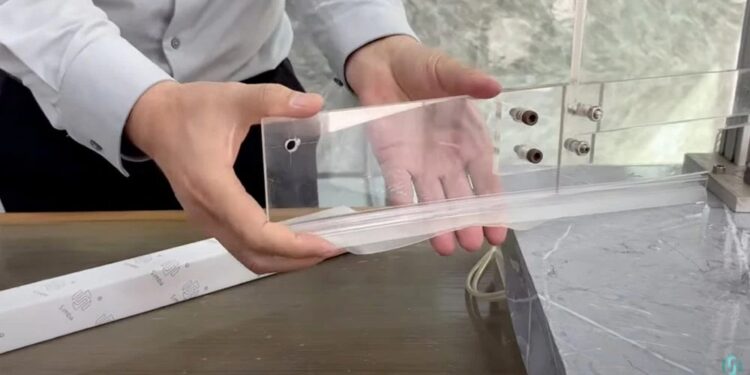Introduction: Why the Right Supplier Matters
When you’re tackling home repairs yourself, you quickly learn that quality matters. It’s not just about getting the job done — it’s about getting it done well, so you don’t have to revisit it later. That’s where SIMBA SEALS come into play. These seals are trusted to deliver long-lasting performance, and choosing the right supplier for them can transform a simple repair into a dependable solution.
In this article, we’ll explore how to identify good suppliers of SIMBA SEALS, what to look for in their offerings, and how to apply them effectively in your DIY home repair projects. The goal? To equip you with the knowledge to buy smart, install once, and relax thereafter.
Understanding SIMBA SEALS: What They Are & Why They Matter
What are SIMBA SEALS?
SIMBA refers to a manufacturer of high-quality sealing strips and profiles — particularly for shower doors and glass enclosures. Their product line boasts thousands of designs, claiming to cover most market styles. These seals encompass shapes like bulb, F-shape, T-shape and materials such as rubber, silicone, vinyl and magnetic strips.
Why they matter in DIY home repairs
When you’re repairing or upgrading things in your home — maybe re-doing a bathroom, replacing a worn-out shower enclosure, or addressing leaking doors — using robust seals means fewer future problems. In essence:
- They help prevent water leaks, mould growth, and moisture damage.
- They save time and money by reducing the need for frequent re-repairs.
- They help maintain a professional finish rather than a “temporary fix.”
Long-term solutions vs quick fixes
Many DIY repairs stop short of long-term planning: a cheap seal, a patch job, and later the problem resurfaces. With a good supplier offering durable products like simba seals, you build something that lasts. Think ahead: “Will this still be solid in 5 or 10 years?” SIMBA seals are designed with long-term durability in mind.
How to Find the Right Supplier for SIMBA SEALS
Choosing a good supplier is as important as choosing the right product. Here are key factors to look out for.
1. Verified product range & compatibility
A reliable supplier will show a wide range of SIMBA SEALS — different shapes, materials, and sizes. Make sure the supplier has up-to-date listings or can confirm the model fits your setup.
2. Quality assurances and materials
Check the supplier for quality statements: Is the material from known brands? Are there anti-mould additives, UV protection, or press testing? Using trusted raw materials is a good sign of durability and reliability.
3. Custom or standard solutions
Some projects require a standard seal; others (like an odd-shaped shower or bespoke glazing) may need custom work. The ability of your supplier to offer custom sizing or design services is a major plus.
4. Delivery time and support
For a DIYer, timely delivery matters — you don’t want to start the job only to be stalled waiting for a part. Evaluate whether the supplier you pick offers responsiveness and support in case of issues.
5. Transparent terms and warranty
A good supplier will state warranty terms, return policy, and communicate clearly. Always ensure there’s some level of guarantee on the product so you can have peace of mind.
Practical Checklist Before You Order SIMBA SEALS
To avoid mistakes and delays, use this checklist:
- Measure the gap or profile you need: width, shape, how it fixes.
- Ask the supplier: “Is this a brand-new genuine SIMBA part or a third-party equivalent?”
- Review sample images and material specs — does the seal look the same?
- Confirm the warranty, shipping cost, expected delivery time, and whether installation instructions are included.
- Check reviews or ask for past customer feedback.
- Ensure the supplier can support any custom sizing or unusual shape if your setup is non-standard.
Installation Tips for Long-Term Success
Buying good seals is the first part — installing them correctly is the second. Here are some tips to maximise the lifespan of your SIMBA SEALS.
Remove the old correctly
Before fitting the new seal, clear away old seal strips, adhesive residues, grime, and mineral build-up. Clean the surface thoroughly and ensure it’s dry. A clean base means better adhesion and seal performance.
Match the seal to the profile
Use the correct shape: bulb-seal goes into a groove; T-shape might push into a channel. Check whether it’s rubber, vinyl, magnetic, or another material. Choosing the right shape ensures proper sealing.
Use proper adhesives and tools
Some seals may require adhesive backing, screws, or clips. Make sure you have what’s needed before starting. Follow installation instructions carefully.
Ensure correct alignment and compression
The seal must sit snugly but not overly compressed. Too loose you’ll get leaks; too tight and you risk wear or damage. After fitting, test by closing the door or panel and checking for drafts, water droplets, or movement.
Maintain periodically
Even the best seal isn’t truly “fit and forget.” Every few months, check for gaps, wear marks, compressed areas, or minor leaks. Cleaning off bathroom vapour, soap scum, or grime extends lifespan.
Common DIY Home Repair Scenarios Using SIMBA SEALS
Bathroom enclosure leaks
If your shower door is letting water escape, the bottom or side seal may be worn or mis-shaped. Fitting a high-quality seal from a trusted supplier ensures water stays inside the enclosure, preventing damage to your floor or walls.
Door or window draughts
While SIMBA specialise in shower door seals, the principle applies: quality sealing prevents air leakage. Upgrading seals around glass panels or doors can improve comfort and reduce heating bills.
Replacement for bespoke or odd sizes
If you’re refurbishing an unusual glass door or custom-fitted panel, the wide range of SIMBA seals increases the chances of finding the right shape. Suppliers offering custom sizing help for non-standard setups.
Project for resale or long-term occupancy
Investing in high-quality seals now adds perceived value to your property. Neat finishing, no leaks, and no mould contribute to a professional look and long-term performance.
How to Evaluate Price vs. Value
With DIY purchases, it’s easy to focus on price alone. But with sealing solutions, value is about long-term performance:
- Low price may mean weaker materials, less tight tolerances, and fewer warranties.
- Higher price from a quality supplier may provide better materials, finish, warranty, and fewer future repair costs.
Spending a bit more upfront often saves time, money, and frustration down the line.
Supplier Red Flags to Watch For
Avoid these traps:
- Vague descriptions of “generic seals” without brand or model.
- No material specification, warranty, or ambiguous shipping and return conditions.
- Suppliers who stock very few shapes and materials.
- Long lead times, poor communication, or lack of samples.
- Claims that sound too good without evidence — always ask for product data.
Case Study: Choosing a Supplier for a Shower Door Seal
Imagine this scenario:
- You have a sliding glass shower door in an older bathroom. The bottom seal is cracked; water leaks onto the floor.
- You find a few suppliers listing SIMBA SEALS. Supplier A offers a basic rubber bulb seal, cheap. Supplier B offers SIMBA-branded seals, multiple shapes, materials, free samples, and a 5-year warranty.
- You measure the gap: 6 mm channel width, door slides left and right, panel height 2000 mm. You contact Supplier B, ask for a T-shape seal in vinyl to fit. They confirm compatibility, show photos, and send a quote with installation instructions.
- You order the seal, clean the area, remove the old seal, install the new one, and test for leaks. No water escapes. Six months later, still dry, smooth operation, zero mould.
Result: A long-term fix rather than a stop-gap.
A Friendly Buyer’s Checklist Before You Commit
- Supplier clearly states they supply Simba Seals or genuine parts.
- Product listing includes shape options, material types, and compatibility.
- Raw materials or standards are mentioned.
- Warranty is offered.
- Free sample or clear photo provided.
- Delivery time, shipping cost, and return policy are clear.
- Installation instructions or guidance included.
- Measured dimensions carefully and matched them to the product.
- Budgeted not just for the seal but also for installation tools.
- Checked negatives — no hidden costs, no vague wording.
Final Thoughts: Investing in Longevity
Putting in good quality sealing solutions may not be the most glamorous part of a DIY project, but it might be one of the most enduring. With SIMBA SEALS, you’re getting products designed with durability, flexibility, and professional standards in mind.













